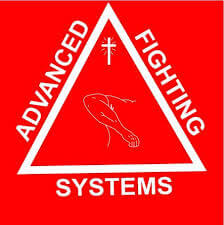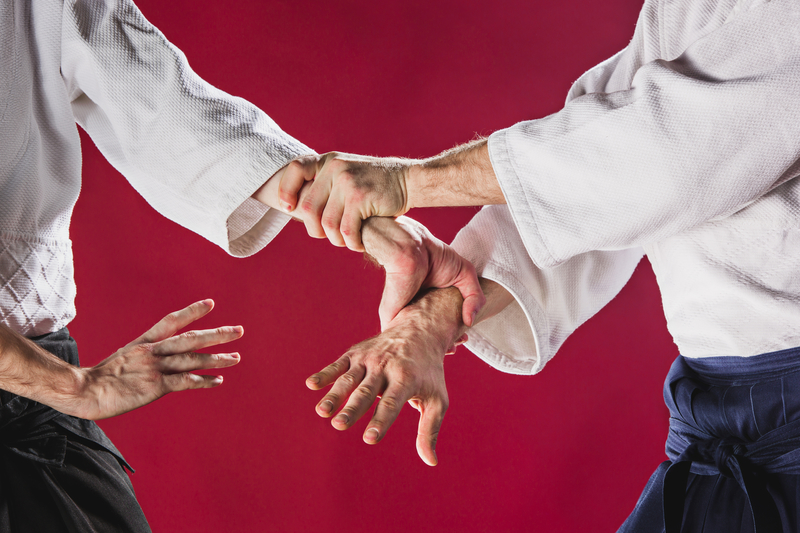Street Survival Tactics
How to Achieve Higher Focus During Training (Both Outside and Inside The Gym)
Martial arts and other similar physical training programs are known to teach physical strength, fitness, and discipline.
While the training involved with martial arts can be intense, learning how to improve it can result in better results in your physical fitness, but also in the way that you “train” in other things outside of the gym.
Maybe you also have another hobby or job that you want to improve in.
Well, the way that you focus in your martial arts training can also transfer over to other parts of your life.
Use the following tips to increase your focus…
Laying the Foundation: What Are Your Strengths and Weaknesses?
For any type of training, you have to know your starting point so that you can set realistic goals.
You will never get to where you want to be without first acknowledging where you currently are.
For physical training, you might list your lack of flexibility as a weakness and then set a goal to become more flexible.
For mental training, perhaps your strength is that you have good time-management skills and can multitask fairly well, but you aren’t very good with short-term memory, or maybe your math skills are lacking.
Your goals, then, could focus on enhancing your memory skills. Or, you could opt to take some math refresher courses to improve those skills.
For some people, thinking about and listing negatives can be difficult because simply acknowledging these areas can be depressing and disheartening.
For others, listing the positives can be just as hard because it might feel like you’re being vain or boastful.
It is important that you give yourself permission to be as honest as possible about the good and the bad, and take time to realize that there is nothing wrong with either list.
Should Someone Else Assess You?
Martial artists are particularly susceptible to experiencing traumatic brain injuries (TBIs).
TBIs occur when a force strikes or fractures the skull enough to injure the brain, often resulting in impaired memory and/or trouble focusing.
Protect your head at all costs. If you have already experienced a TBI recently, make sure to rest your brain so it can heal appropriately.
There are dozens of assessment tests that you can take, ranging from personality tests to aptitude tests and memory tests. Many of them are free.
You can take a test which will provide you with a list of the types of jobs and careers that you are well-suited for.
If you struggle with listing your strengths and weaknesses, or you don’t understand how they will help you in whatever it is that you are working toward, it might be time to get some outside help.
An experienced life coach can give you a number of assessments and assignments to work on that will help you devise the right plan to move you forward.
Many of these tests are offered online, usually for free. Some sites provide an analysis of what the results mean. However, more in-depth discussions typically require a payment of some kind.
Moving Beyond Life Coaches
Some people find that working with an alternative-medicine coach or spiritual professional can be helpful for enhancing focus.
Life coaches, for example, work through your situation with you, providing insights and suggesting techniques to adapt your thinking.
They can boost your confidence and empower you to make the most of your natural strengths.
You might be shocked to learn that some doctors offer good training advice.
Alternative-medicine doctors or holistic doctors believe that everything about a person, from their physical health to their mental and emotional health, is connected.
Illness or pain may have subtle causes that are not related to biology. Possibly your living situation, relationships, diet, or other areas might need tweaking, for example.
Holistic or alternative-medicine practitioners can help provide guidance not only to heal illness, but also to heal the reasons that you’ve become ill in the first place.
Imagine that you are trying to get a new job.
Let’s say that one of the skills required for the job is to know a short list of computer programs. You are so worried about trying to learn this list that you stay up late at night.
Every night, you think you’ve learned it, and you fall asleep exhausted. After only a few hours of sleep, you wake up to find that you can’t remember the last three or four items on the list.
You develop a headache that won’t go away.
Frustrated, you go to the doctor – convinced that you have a brain tumor.
After hearing about the symptoms and asking a few questions, the doctor figures out that you are stressing and obsessing about this new job and learning the new information. The doctor gives you some advice about forming new memories, getting proper sleep, and learning to let go of stress.
Needless to say, it works. You can’t form memories if you are sleep-deprived. You can’t sleep if you are overly stressed.
Once you train your mind to relax and let things go, you will be able to unlock the memory-making potential that you need.
Training Takes Time
Whether you use a life coach or get advice from a holistic doctor, it is important to know that mental and physical training takes time.
No one laces up their shoes and trots out to casually run a marathon. They work up to that distance over time.
You won’t leaf through a book and master a new language in an afternoon. It takes time and practice to accomplish that.
Be patient with yourself.
You may falter, and you may even want to quit, but training takes time and dedication.
Learning new skills can be a challenge, but once you master it, you will have that skill forever.
You will also have a sense of accomplishment and pride that you have managed to reach your goal, no matter what that goal might be. And that, my friend, is priceless.
Don’t let stress or fear of failure rob you of something that you want.
Train your brain like you would your body, and reach your full potential, whether you’re trying to learn a new move in your martial arts training, or need to figure out how to get that much-sought-after promotion at work.
It’s all about determination and the effort you put forth.


